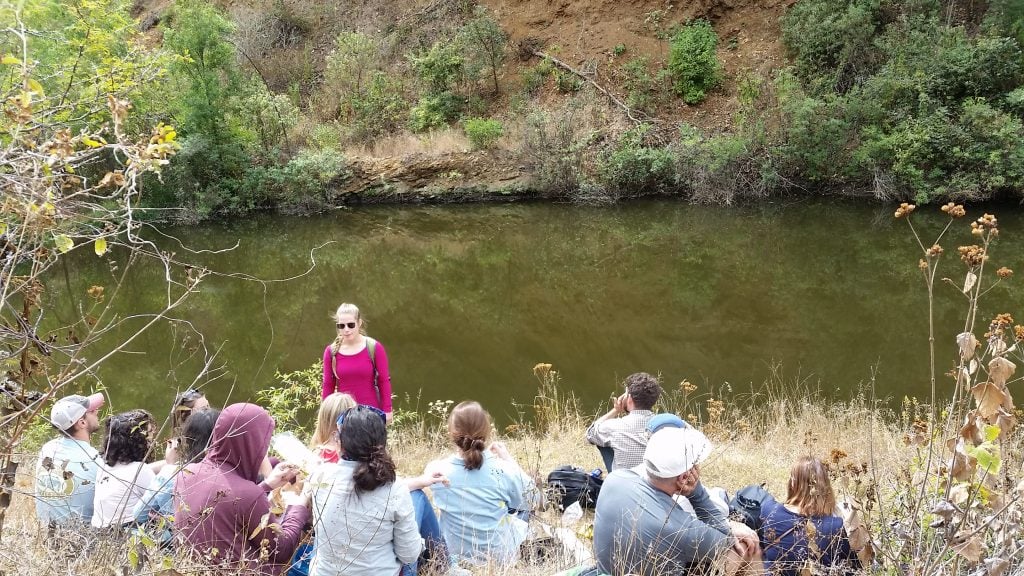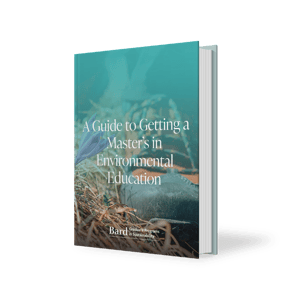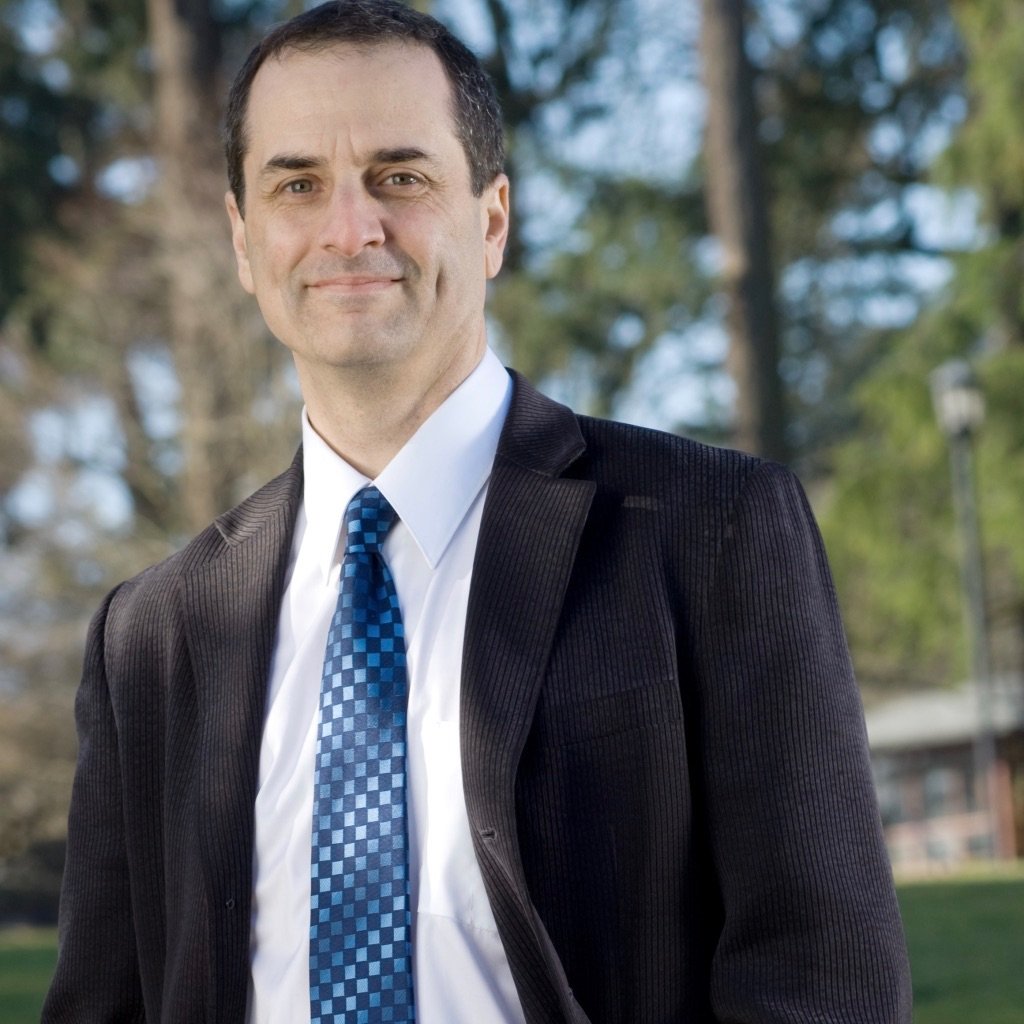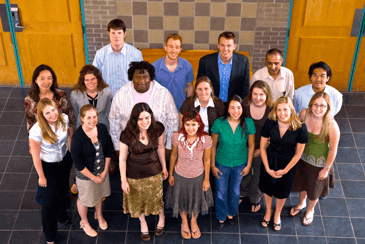How Far-Right Politics Impacts Sustainability Education

Life in the post-Trump era is disorienting because established facts have become subject to debate, and crucial progress toward a more sustainable future has been halted or undone.
It's abundantly clear that we need people who are committed to educating the global population about the reality of climate change. Is it too late to stop climate change? No, but climate change and environmental collapse are existential threats to global civilization, and our global disregard for sustainability fuels our global disregard for human beings and for equality.
Read on to learn why environmental educators are the crucial link between the current chaos of our social and political life and the better future we know is possible.
Sustainability education connects us to nature
Environmental education—formal and informal education directed at school children in and about the environment—has become essential to the future of the human project.
In 2005, Richard Louv coined the term “nature-deficit disorder” to describe the increasing disconnection of children from the natural world. In the years since, this phenomenon has dramatically accelerated with a generation that has grown up in an indoor world, on personal screens, that is fast becoming majority urban. The unavoidable, everyday immersive environmental education that most people who were born in the last century experienced as children and young adults has largely disappeared.
Why does sustainability education matter?
Recent research has confirmed the benefits of learning in and about the environment. According to a summary of the research, these benefits include:
- Enhanced knowledge in science, mathematics, reading, writing, and more
- Emotional and social skills, such as self-esteem, character development, teamwork, and leadership skills
- Environmentally friendly behavior, such as reducing water use, increasing recycling, and participating in community cleanups
- Academic skills, such as critical thinking, oral communication, analytical skills, problem-solving, and higher-order thinking
- Motivation to learn, including enthusiasm for and interest in school
- Civic interest and engagement, including feelings of civic responsibility, feelings of empowerment, and the ability to take action
While environmental education inside and outside of schools has been filling this important gap created by a nature deficit, today’s politics have elevated the importance of environmental education work to mission-critical.
How far-right politics has impacted environmental efforts
Trump’s presidency unleashed an unprecedented assault on the nation’s environmental protection and resource stewardship laws. In the years since taking office, Trump’s EPA initiated the roll-back of more than 75 environmental rules and regulations. The civic engagement that is motivated by environmental education on behalf of the environment will be critical to rebuilding a better environmental protection framework post-Trump.
This rebuilding will not be easy. Affected industries will fight re-regulation tooth and nail. Like the original laws that were passed in the 1970s and 1980s, a 21st-century policy framework for protecting the environment will have to rely on the environmental activism of a new generation.
Moreover, the rise of a “fake news” culture complicates the rebuilding process. In many ways, the climate denial movement—heavily funded by fossil fuel interests—was the gateway drug to political tolerance for fake news.
Since the early 2000s, right-wing politicians consistently and publicly denied the science of climate change, leaning instead on an industry-manufactured stew of half-truths, misrepresentations, and myths about climate change. With Trump’s election, climate denial became official US policy, embraced by many of his political supporters who denounce any climate change initiatives they see. Beyond climate, Trump ushered in, very quickly, the practice of dismissing any inconvenient truths from environmental science.
The need for eco-literacy and environmental education
Trump’s election was enabled by the rise of the fake news industry. This, in turn, was made possible by social media outlets that bypassed traditional media and the set of professional ethics which had guided reporting for a century. Today’s rising generation requires core eco-literacy—a basic understanding of how living beings are interrelated—to be able to sort truth from fiction. They need this in order to stand up for a sensible sustainable development framework to protect the earth for people alive today, for future generations, and for all the other creatures on the planet.
The research has demonstrated that sustainability education delivers not only an understanding of how the world around us really works but a whole suite of sought-after learning outcomes. In the coming decades, we will have to rely heavily as well on the love of nature that environmental education can instill to renew our national commitment to environmental protection and ensure for all of us a sustainable future.
But we must do our part, too, in bringing that future forth. One of the four sustainability programs at Bard is a Master's in Environmental Education, which is designed to prepare educators to create an informed and engaged citizenry supporting progress toward a just, prosperous, and sustainable future. Getting an environmental education degree enables graduates in pursuing successful, high-impact careers in private schools, NGOs, government land management agencies, private land conservation organizations, museums, environmental education centers, and consulting firms.
Whether you've been searching for jobs for people who love the outdoors or you've had your mind set on ecological education, the Bard M.Ed in Environmental Education might be right for you.







